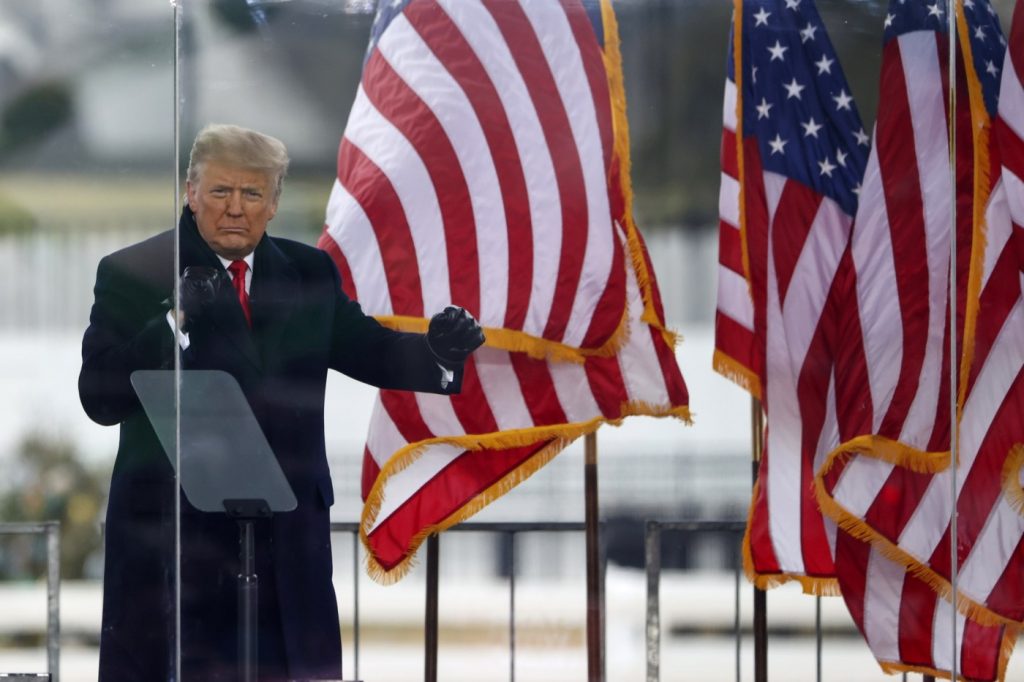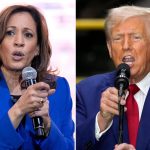WASHINGTON — Donald Trump should stand trial for his “private crimes” in trying to overturn the 2020 election, U.S. prosecutors argued in a newly unsealed court filing that sheds fresh light on his interactions with former Vice President Mike Pence.
The government said Trump’s communications with his running mate should stay in the case because the former president acted as a private citizen and candidate when he allegedly pressured Pence to intervene to stop or delay Congress from certifying Joe Biden’s win on Jan. 6, 2021.
The government’s 165-page brief, released Wednesday with some redactions, starts the next round of legal wrangling over whether the latest indictment can proceed after the U.S. Supreme Court court held that presidents in many instances cannot face charges for official acts while in office.
“Although the defendant was the incumbent president during the charged conspiracies, his scheme was fundamentally a private one,” US Special Counsel Jack Smith’s office argued.
Related Articles
Three more women say Robert F. Kennedy Jr. cheated on Cheryl Hines with them
Opinion: Supreme Court immunity ruling isn’t just bad, it’s unconstitutional
Abcarian: Why we should care about RFK Jr.’s scandal with a journalist
Conservative Christians were skeptical of mail-in ballots, now they’re gathering them in churches
Melania Trump declares pro-choice views in new memoir: report
Trump’s lawyers have focused on his interactions with Pence as a vulnerability for prosecutors because the high court suggested the former president might have immunity over his communications with his vice president.
The filing detailed Trump’s “desperate conduct” in an exchange he had over the physical peril that Pence faced when Trump supporters stormed the Capitol, injuring dozens of police officers. After hearing that Pence had been taken to a secure location in the Capitol, an aide rushed to the White House dining room where Trump sat, hoping he would “take action to ensure Pence’s safety.”
Instead, according to the filing, Trump “looked at him and said only, ‘So what?”’ Prosecutors said in the brief they don’t plan to use the exchange at trial, without explaining why.
Trump is due to file his response by Oct. 17, and then the government will get a final chance to respond on Oct. 29. U.S. District Judge Tanya Chutkan has not announced if she plans to hold a hearing, and she hasn’t set a trial date.
The back and forth likely marks the last time the prosecutors will air potential evidence against the former president before the Nov. 5 election, in which Trump is running against Vice President Kamala Harris. Trump’s alleged effort to overturn the 2020 election featured heavily in Tuesday night’s vice presidential debate, showing how the rift over the assault on the Capitol is still fresh on the minds of many voters nearly four years later.
Trump spokesperson Steven Cheung said in a statement that the “falsehood-ridden” brief was an attempt by the Biden’s administration to interfere with the upcoming presidential contest. Trump called the filing a “hit job” in a social media post.
The brief offers a preview of what a trial against Trump would look like. Prosecutors said they would call swing-state election officials to testify about the falsity of Trump’s fraud claims. They also would introduce the contents of Trump’s iPhone and tweets that the government contends were “unofficial.”
Smith’s office had a forensic examiner from the FBI’s computer analysis response team examine Trump’s phone. The FBI official will testify about the activity on Trump’s phone to show he watched TV and tweeted in the dining room during the riot, according to the filing.
In addition, prosecutors plan to call a White House official to testify that Trump indicated to his family members in private that he would fight to remain in office regardless of whether he had won the election, according to the filing. Trump told his wife, daughter and son-in-law that “it doesn’t matter if you won or lost the election. You still have to fight like hell.”
The special counsel said prosecuting Trump for his “corrupt efforts” regarding Pence should not be off limits under the immunity guidelines set up by the Supreme Court.
At trial, prosecutors would introduce evidence of private phone calls or in-person meetings that Trump had with Pence in their unofficial capacities as running mates after the election, according to the filing.
The filing indicates that Trump was so eager to remain in office that he even told campaign workers, White House staff members, and Pence’s chief of staff ahead of the election that “he would simply declare victory before all the ballots were counted and any winner was projected.”
The special counsel said the government will present evidence that Trump, in his capacity as a candidate, contacted state election officials in some swing states to press his false claims about election fraud. He hosted Michigan lawmakers at the White House while placing calls to Arizona officials and Georgia’s attorney general — all fellow Republicans, according to the filing.
Trump made the outreach even though “he had no official role in the process by which states appointed and ascertained their presidential electors,” the special counsel said.
Pence was one of the people who told Trump his claims of having won the election were false, according to the U.S.
“The evidence demonstrates that the defendant knew his fraud claims were false because he continued to make those claims even after his close advisors — acting not in an official capacity but in a private or campaign-related capacity — told him they were not true,” prosecutors said.
The special counsel argues that presidents have no official role in helping states organize their presidential electors. The filing noted that Supreme Court Justice Amy Coney Barrett wrote in her concurring opinion that Trump’s organizing of alternate presidential electors is conduct that “is private and therefore not entitled to protection.”
With assistance from Patricia Hurtado and Erik Larson.
©2024 Bloomberg L.P. Visit bloomberg.com. Distributed by Tribune Content Agency, LLC.


